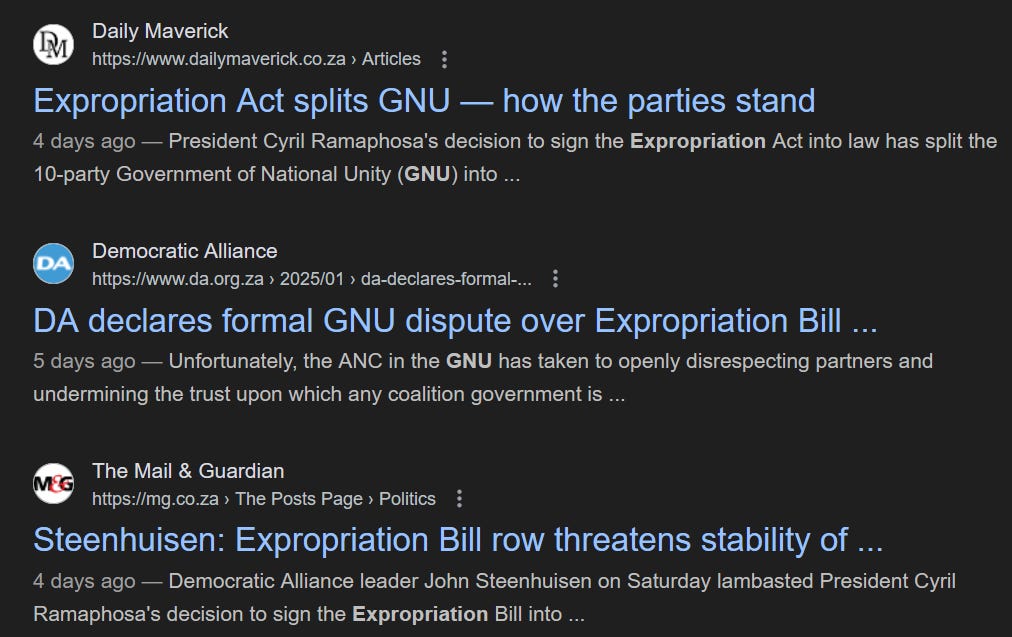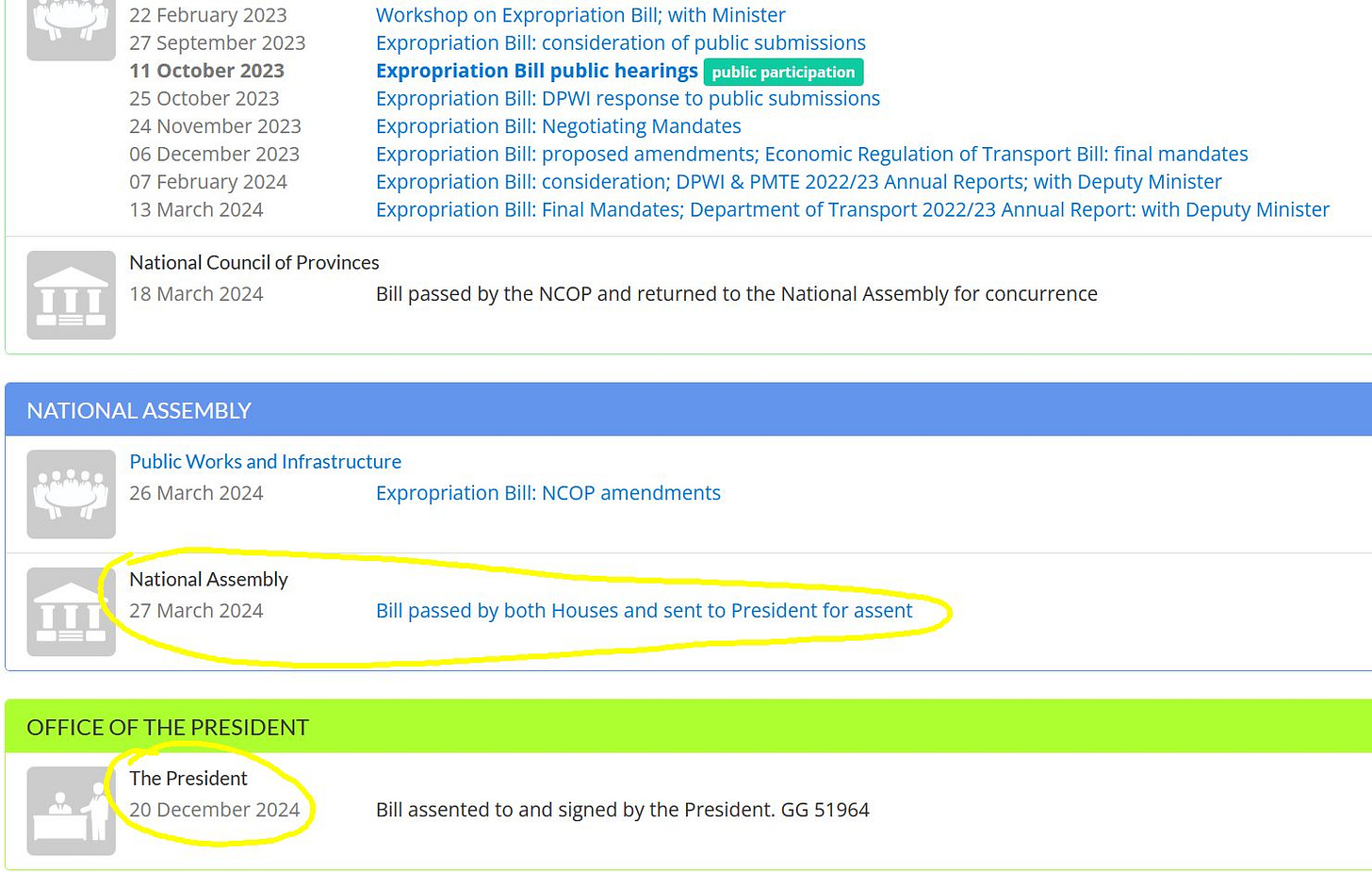Fake controversies around the 'GNU'
The drama around the Expropriation Act and the BELA Act is manufactured
South African media and social media have been abuzz in the last week with controversies around the new Expropriation Act that was recently signed into law by President Ramaphosa.
Last year there was similar media and social media drama around the Basic Education Laws Amendment (BELA) Act.
Let me save you a lot of time: both of these controversies are completely manufactured and you should not bother reading anything that suggests otherwise.
If necessary I will explain in detail why there is nothing radical, or even necessarily progressive, about either of these pieces of legislation. But I would rather not waste my time responding in detail to manufactured controversies.
A blindingly obvious indicator that all is not what it seems, is that Ramaphosa deliberately avoided signing the two Bills during his previous term. Both pieces of legislation went through extensive public consultation and parliamentary processes before eventually being finalised by the two houses of Parliament in March and May 2024, respectively. Ramaphosa had ample time during those processes to obtain advice on constitutional concerns and in the case of the Expropriation Bill two full months after Parliament had finished its work. The Democratic Alliance had no sway and there would have been no political obstacle to Ramaphosa signing.
This website is great for tracking how Bills have progressed through the parliamentary process:
BELA Bill (Parliament sent it to the President on 16 May 2024)
Expropriation Bill (Parliament sent it to the President on 27 March 2024)
Here’s a summary of the end of the Expropriation Bill process:
Why did Ramaphosa delay? I can only assume it was in anticipation of exactly this situation. After all, as I argued before and after the elections, Ramaphosa appeared to be deliberately guiding the ANC to a substantial electoral defeat. There was widespread talk of an ANC-DA coalition. What did his delay achieve? It makes it look like the DA has been forced into making concessions. And that serves two purposes:
It disguises where true power lies in the coalition (‘GNU’)
It will be used as a bargaining chip by parties like the DA, FF+ and PA to argue for other things that they want ‘in return’.
There are various commentators, ‘analysts’, and ‘journalists’ who have been very keen to persuade the South African public that the ANC ‘won’ the coalition negotiations - the performances around the Expropriation Act and the BELA Act are intended to bolster such claims. But that is completely misleading. (Look out for my piece on the ‘GNU’ coming soon).
The most obvious issue already on the table for which 2. will be used is the National Health Insurance (NHI) Act. While Ramaphosa signed it at the end of his term [and yes, you should wonder why he signed that and not these other ones - more on that soon] the devil is in the details of how it is implemented.
There is a lot up for grabs: the entire national health system and budget, in fact, which amounts to a cool R893billion over the next three fiscal years...
Save yourself some time and don’t get caught up in manufactured controversies. The real moves to grab power - including in institutions like the National Prosecuting Authority - and public money in South Africa are only beginning.






